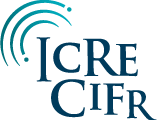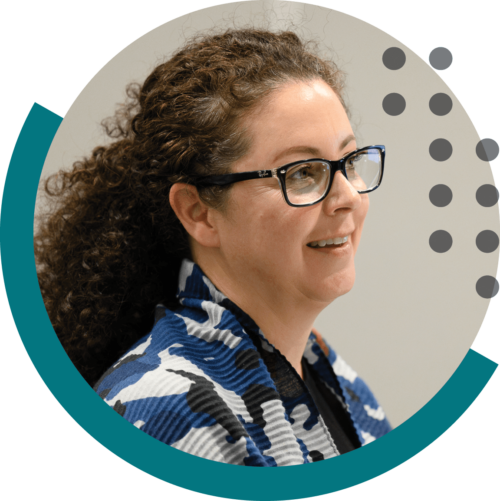
Learning Tracks
The International Conference on Residency Education (ICRE) offers a diverse and inspiring program that features 17 Learning Tracks designed to enhance professional development of those involved in medical education including residents, clinical educators, program directors, program administrators and researchers.

Learning Tracks
The International Conference on Residency Education (ICRE) offers a diverse and inspiring program that features 17 Learning Tracks designed to enhance professional development of those involved in medical education including residents, clinical educators, program directors, program administrators and researchers.
| Learning Track | Description |
|---|---|
| Accreditation in residency education (ARE) | This track highlights all aspects of the accreditation processes of residency training programs around the world. Topics might include; accreditation systems, continuous improvement of programs, graduate outcomes related to programs, and standards of program quality. |
| Admissions: Selecting residents (ASR) | This track highlights all submissions related to selecting residents for postgraduate/graduate medical training. Topics might include: evidence-based guidelines in selecting residents, ensuring diversity in residency training programs and designing processes for selection that encompass the mission and vision of the institution/specialty/community as well as evidence-based practices. |
| Assessment: Cutting edge tools and practical techniques (ACE) | This track highlights submissions describing effective methods of assessing the required competencies of physicians in training in any domain of medicine. Emphasis will be placed on new assessment tools/methods/approaches for particular CanMEDS Roles as well as evidence-based methods that have been proven to work in postgraduate medical education. |
| Competency-based Education (CB) | This track highlights submissions dealing with CBME as it continues to be a clear focus in medical education around the world. This track accepts a variety of broad-based topics in the area of CBME. Topics might include: implementation, assessment of competence, educational design and growth mindset as examples. |
| Education research methods (ERM) | This track highlights submissions about enhancing the methods and quality of research about residency education. This track would include scholarly works and sessions that might help others to enhance their ability in conducting studies to improve PGME. |
| Equity, diversity and inclusion (EDI) | This track highlights submissions which pertain to residency education for diverse learners and populations through the lens of EDI. The track will focus on EDI along the breadth of the residency education continuum, from selection to outcomes. The formal, informal, and hidden curricula will be examined. Offerings may include, but will not be limited to, the following domains of diversity: gender, sexual, racial, ethnic, socioeconomic, and geographic origin diversity, power and privilege, microaggression, and allyship. As a multidisciplinary field within residency education, followers of the track should expect to encounter a variety of methodologies, from the quantitative to the qualitative, and the bridging of theory and practice. |
| Faculty development (FD) | This track highlights submissions about preparing teachers, residents and clinician educators for their various roles in residency education will be featured in this track. The breadth of faculty development will be examined, including that related to Competency Based Medical Education. |
| Health policy and residency education (HP) | This track highlights submissions on a wide variety of health policy issues relating either directly or indirectly to resident training should be submitted to this track. |
| Humanities and history in medical education (HIS) | This track highlights submissions pertaining to the history of medicine are most welcome in this ICRE track. Residency education, and advanced areas of medical education in general, have evolved during the history of the profession. Submissions may include those relating to original research detailing the history of residency education. |
| Leadership education (LED) | This track highlights all aspects of leadership education, including defining leadership, enhancing training models for residents and faculty, and outlining approaches to assessing leadership abilities. Leadership is a priority content area for residency education around the world. In the 21st century, where health care demand is high, resources are limited, and transformation of training is underway, leadership competencies are more crucial than ever. |
| Learning analytics (LA) | This track highlights submissions from a variety of methodologies, qualitative and quantitative are encouraged. This includes studies of how trainees’ clinical and academic performance can be leveraged for better learning within their training programs. Learning analytics is the measurement and analysis of data about learners for the purposes of understanding, improving and supporting their learning. |
| Physician health and wellness (PHW) | This track highlights content highlighting physician health and wellness including; scholarship, teaching and assessing. |
| Quality improvement and patient safety in residency education (QI) | This track highlights curriculum and teaching that incorporates cutting-edge research and practice as it relates to the defined competencies in postgraduate training, all of which is required for teaching the delivery of safe, quality patient care. Submissions under this track will explore innovative educational approaches that address quality improvement, patient safety and resource stewardship in residency education. |
| Simulation in residency education (SIM) | This track highlights scholarly presentations across the spectrum of simulation methods. Simulation is established as a powerful mode of instruction and assessment in residency education, but there is still much work to be done on the effective use of simulation in residency. |
| Teaching and learning in residency education (TL) | This track highlights submissions regarding all aspects of training residents for practice. Submissions on any aspect of physician competencies (Medical Expert, Communicator, Collaborator, Leader, Health Advocate, Scholar, and Professional) are encouraged. This is a core component of the ICRE program. |
| Using innovative technologies for medical education (TEC) | This track highlights submissions that have a special focus on how the use of technology has an impact on residency education. We are interested in how innovative tools such as generative artificial intelligence (AI), Social Media, robotics, virtual and augmented reality, computer-assisted learning. |
| What Works? Innovations in residency teaching and assessment (WW) | This track highlights submissions that depict innovative educational techniques and tools for residency education. Submissions must describe innovative teaching or assessment methods for one or several of the CanMEDS Roles or other competency frameworks. |
